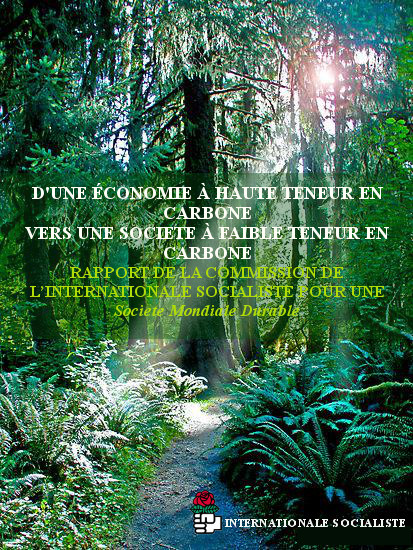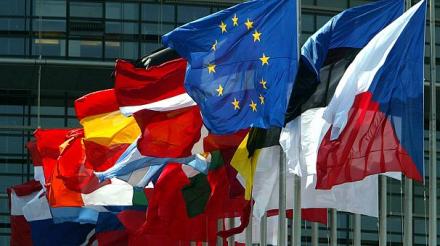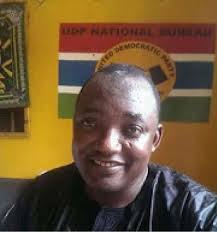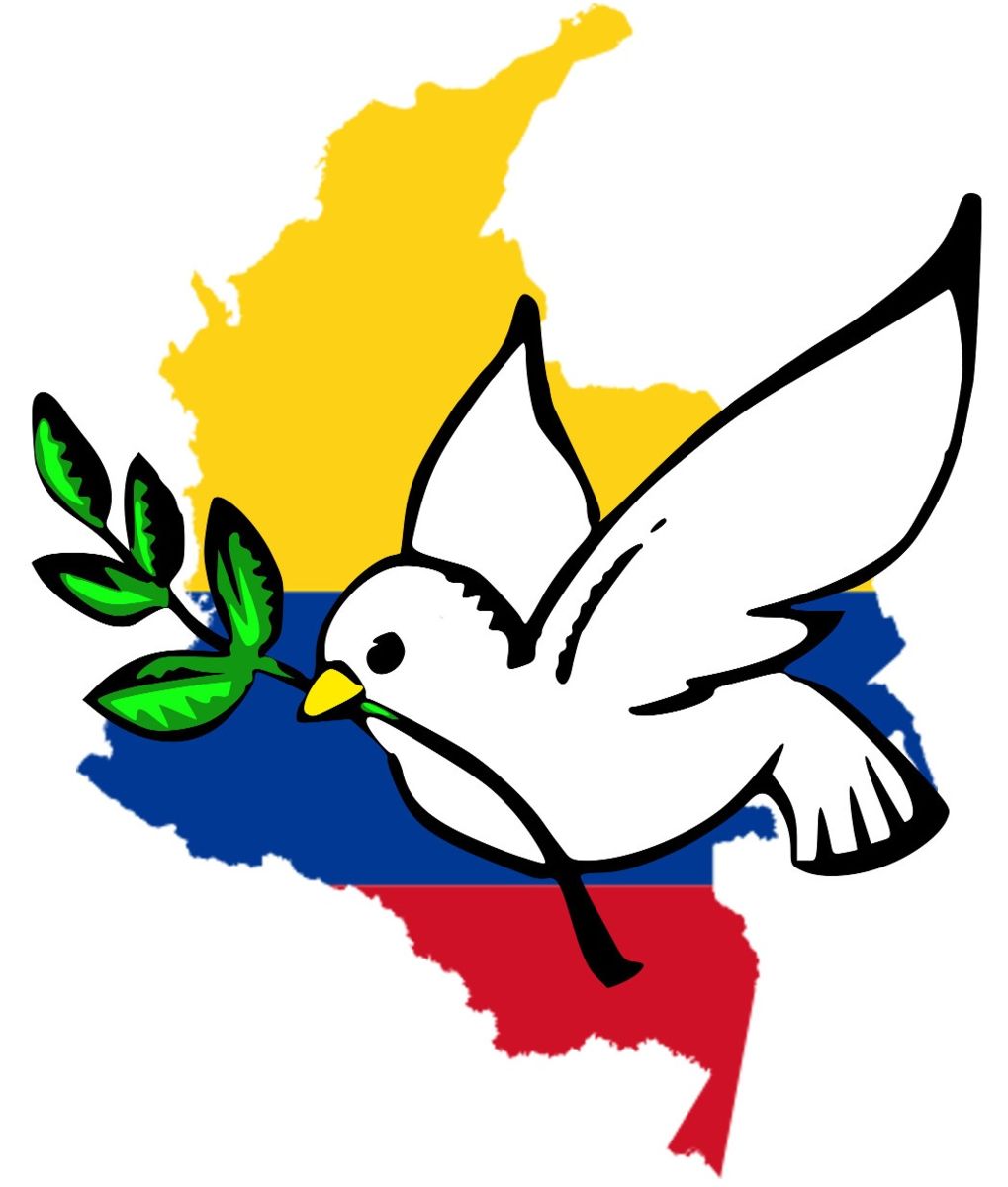Conseil
Conférence du Conseil de l'Internationale Socialiste, Oslo
02-04 juin 1962
THE WORLD TODAY: THE SOCIALIST PERSPECTIVE
Declaration of the Socialist International endorsed
at the Council Conference held in Oslo on 2-4 June 1962
The Socialist International reaffirms the principles of the Frankfurt Declaration of 1951 on the ‘Aims and Tasks of Democratic Socialism’.
In the ‘fifties, it became apparent that the many new scientific discoveries, if applied for peaceful purposes, made possible for the first time in history the elimination of hunger and poverty from the face of the earth. The same discoveries, used for military purposes, could cause the end of our civilisation.
There are few decades in history which have produced such vast and varied changes. The work which Socialist governments began of responding to the urge for independence among colonial peoples was carried forward. By 1960, most countries of Asia and Africa had won their independence and joined the concert of free nations. Thus, for the first time in history, peoples of all continents meet together freed from alien domination. The Socialist International greets the thousand million people of the new states and welcomes their participation in the common quest for justice, equality and peace for all mankind.
Nevertheless, colonisation still survives. It is significantly entrenched in countries where no Socialist movement has been allowed to exist and where democracy itself has been suppressed. The Socialist International finds no moral justification for the continued existence of colonialism and condemns it in all its forms.
In many democratic countries in the past decade, economic expansion enabled striking progress to be made towards the welfare society, and consequently the age-old insecurities of their citizens were substantially reduced. Yet at the same time, the gap in the standard of living between rich and poor nations has widened still further. Hundreds of millions still suffer from hunger and poverty.
In the ‘fifties, the will of the human spirit for freedom and dignity was repeatedly asserted. In many countries of Latin America, dictatorships were overthrown. In some parts of the Communist world, the iron grip of Stalinism was weakened. Stalin himself was condemned. The proclamation of desalinisation was prompted by popular pressure to break with the detested past and to initiate new policies. But the brutal repression of freedom in the Communist world and the ceaseless efforts of Communism to extend its sphere of influence continue.
In the decade that is over, the world faced many crises. In some parts of the world, armed conflict broke out. However, the deep-seated hostility to war that characterises peoples everywhere helped to avert world war.
SOCIALISM AND INDUSTRIALISED COUNTRIES
The most dynamic impulse towards social change has come in countries where democratic Socialist parties have been able to exert effective influence. History has not confirmed the doctrine of the increasing misery of the proletariat. The worst excesses of capitalism have been corrected through the constant activity of the Socialist parties, the trade unions, and the cooperative societies. New forms of ownership and control of production have emerged. Mass unemployment has been eliminated, social security extended, working hours have been reduced and educational and vocational opportunities widened.
Even where democratic Socialists have been in opposition, their opponents have often been obliged by public opinion to adopt essentially Socialist solutions for the problems of full employment and social welfare. Likewise, in the United States of America, pressures of trade unions and other progressive social forces have made their influence felt.
Despite these improvements, serious problems continue to plague industrialised societies. We believe that they cannot be solved without the application of the principles of democratic Socialism.
Permanent control by the state and public institutions over the economy undoubtedly diminishes the danger of the recurrence of economic crises. Nevertheless, recessions, which interrupt steady economic expansion, still continue.
The increasing concentration of economic power and the growth of monopoly when not controlled also create serious problems. The increasing size of industrial undertakings has brought into being a new class of managers, who enjoy great power without being responsible to the community for the manner in which they exercise it. A task facing Socialism is to make this group aware of its social responsibilities.
In many countries, the level of investment, though higher than it was, is still far below what could be achieved in a properly planned economy. Investment is, moreover, frequently wasteful. Too often, it is directed towards immediate capitalist profit, instead of strengthening in a planned fashion the basis of the economy or meeting urgent social and cultural needs.
Notwithstanding the considerable improvement in the standard of living of the mass of the people, gross inequalities in the distribution of wealth and income remain. The greater part of the privately-owned wealth is still in the hands of very few. Tax evasion and the immense appreciation of capital values perpetuate this evil. Society is still divided into social classes with differences in status and living standards, based on the accident of birth and inheritance, and resulting in differences in opportunities for education and training. Exaggerated emphasis on purely materialist aims is increased by modern business advertising and by the commercialisation of cultural activity, imposing a trend towards drab conformity.
Democratic Socialism has achieved much, but greater tasks still lie ahead. There is no single method to remedy the evils of present-day society. To achieve a fair distribution of wealth, we require an extension of public ownership and control and other legislation to curb private monopolies, to effect a radical reform of the tax system and to protect consumers.
State action, authorised by democratic decisions, is essential to provide for a rapid rate of economic expansion, a sufficiently high level of investment and the swift application of modern scientific techniques. This involves economic and social planning as a central government responsibility.
In democracy, a framework must be created within which the workers can effectively influence decisions and conditions in industry and the economy generally.
The democracies must improve and extend the techniques which will enable them to direct their economic resources so as to serve the long-term interests of the people and to facilitate a more substantial contribution to world economic development. They have yet to establish sufficiently close co-operation with one another to assist the steady development of international trade, unimpeded by high tariff barriers and undisturbed by exchange and currency crises. Economic planning outgrows the borders of national states. The establishment of regional economic organisations is a recognition of this fact.
The free development of the human personality can be ensured only by a reform of the existing social and economic structure. For those still living in poverty, improvement of conditions must be realised by a system of fair wages and of effective social security and family allowances and individual care and help. A basic requirement is the provision of a general system of education with a truly democratic character and ensuring genuine equality of opportunity for all. Education in citizenship, vital to democracy, should be promoted both by the state, and by voluntary organisations, such as political parties, trade unions cooperatives and educational associations.
Democracy can hope for survival only if it can base itself on the keen interest and active participation of citizens in its functioning. The democratic process can be extended and deepened through territorial decentralisation and industrial democracy. Press, radio and television, free from undemocratic controls and pressures, should provide ample opportunities for free, responsible debates on political issues.
The challenge of the generation that inherited the changed society of the sixties is to find the ways and means of completing the task begun. To meet its challenge, this generation must direct its ingenuity and energy to the world as a whole.
SOCIALISM AND EMERGENT NATIONS
The emergent nations, with their hundreds of millions of people, have a heavy burden of poverty to overcome. Their difficult task is an exciting one because independence has released great reservoirs of vitality. There should be available to the new states the whole stock of science, technology and political experience that has been accumulated by the developed countries.
The new states have the opportunity of escaping the evils of capitalism and Communism alike. The capitalist methods of ruthless exploitation of the workers, involving the uprooting of the peasants and driving them into urban slums, are not only obnoxious, but also unnecessary. The Communist method is equally obsolete, consisting as it does of abstracting surplus value through terror and undertaking break-neck industrialisation by the sacrifice of the needs of the people and more particularly at the cost of agricultural development.
The future belongs no more to Communism than to capitalism. Communism and capitalism point back to an age where human beings were treated as raw materials and not as the source and objective of all efforts. The Socialist International greets with satisfaction the fact that so many of the new states, striving to plan their economic future, are inspired by the ideas of democracy and Socialism.
The new states have the opportunity to plan their economy, combining agriculture with industry, reviving agriculture through improved peasant farming and cooperative organisation. Better distribution of industries and decentralisation of the productive process can obviate the growth of new urban conglomerations. The new states, which began their industrial journey not with steam power but with electricity, have greater freedom to plan their development.
The emergent nations, with the co-operation of the developed countries, can avoid many conflicts such as those between urban and rural populations. The new nations suffer from stagnant economic conditions and an ossified social structure. Balanced development depends on releasing and co-ordinating the forces of individual and economic initiative, without allowing private enterprise to reap the profits for the enrichment of a small minority. Fair play and fair shares must now become the basis of their policy.
These possibilities can be fully realised only if the new states pay due attention to the spread of education, for children as well as adults, to the diffusion of skills and general knowledge among the people and to helping families to plan their growth.
The future of emergent nations in this age of transition depends on the efforts of Socialists and other democratic progressive forces in new nations and on aid from the developed countries. The need is greatest in training, in the provision of skilled technicians and in the accumulation of investment capital. Industrialised countries should provide at least 1 per cent of their national income for grant aid programmes. It should be the consistent policy of the Socialist International to unite the Socialist forces of all countries in the great endeavour of accelerating the progress of the new states.
The Socialist International recognises the right of all nations to self-determination. Nationalism has often been a liberating and uplifting force, but when it is taken to extremes, it can threaten human freedom and progress. The dangers of nationalistic excesses, where the welfare of the Socialists in the richer countries succeed in raising the sights of their people above their national needs, and, on the other hand, Socialists in the new countries develop their economy in such a way that the yardstick is human welfare and not national prestige.
There is the danger that the people of new states will be lured by the false perspectives of authoritarianism. Recent experiences in Europe, in Asia, in Africa, in Latin America show how barren this repudiation of democracy can be.
The countries of Latin America, although long free from colonial rule, share some of the problems of emergent nations. Here, scores of millions of people also present democratic Socialism with the insistent problems of hunger, illiteracy and disease.
The developing countries face a tremendous task of transformation involving basic reorientation of the rhythms of life and work of their people. The Socialist International recognises that these far-ranging changes in patterns of thought and behaviour among hundreds of millions of people cannot be brought about unless the developed countries also undertake some fundamental adjustments in their patterns of thought and action. To that pioneering task of social innovation and adjustment, the Socialist International will dedicate its main efforts.
SOCIALISM AND THE COMMUNIST COUNTRIES
Substantial economic expansion in the Soviet Union has led to improved living standards but, above all, to greater military potential. In China, industrialisation is advancing. The fact that the formidable power of a state containing 600 million people is subject to totalitarian rule and severe discipline cannot be ignored. It presents a threat to other Asian countries. Industrialisation and modernisation at the tempo at which they are realised in the Communist sphere are maintained only at the cost either of preventing the essential freedoms from developing or destroying them where they are already in existence.
In the case of Russia this was accompanied, especially in the earlier part of the decade, by ruthless exploitation of the countries of Eastern Europe. The rising of the people in East Germany, Poland and Hungary, who showed such dauntless courage against overwhelming odds, were in part provoked by these policies. Although the revolts were suppressed, they forced the Soviet leaders to make concessions. However, the Soviet Union strives to retain political control over the countries of Eastern Europe. The ban on the activities of the Socialist parties in these countries has continued, though their ideals and traditions have been kept alive in the minds and hearts of countless supporters.
The Communist world is no longer led from one centre of power. The Russian and Chinese leaders differ on essential issues of policy. Their divergent interests lead to a clash of ideology. This is the most important open breach so far in the structure of the Communist bloc.
Despite opposition from the Chinese Communists, the Soviet leaders abandoned the theory of an inevitable was between capitalism and Communism. As a consequence, they now claim to base their foreign policy on the principle of peaceful co-existence. In practice, however, this is only a change of tactics, and the struggle against the non-Communist world is continued in a different form. The Communists admit that the conflict is not diminished, but the emphasis merely shifted from the purely political to the economic, social and ideological fields.
Communism is not merely a social, political and economic system, but a set of doctrines, which its advocates claim to be infallible, and which they strive to extend all over the world.
Rivalries in the Communist sphere between different centres of Communist power and currents of opinion concerning Communism, make it manifest that Communist pretensions to totalitarian control over the individual, the nation and the development of society, are incompatible with the nature of man, the role of the nation and the evolution of human society.
For Communists, the end justifies the means, and there is a permanent contradiction between what they say and do.
Although the Communist countries claim to be peace-loving, the way in which they have used their military power has aggravated tension in the world. Although they encourage the non-aligned countries when they can exploit the attitude of the latter in their own favour, they condemn them when they cannot.
Although the Communist countries use the strongest anti-colonial language, they have enslaved scores of millions of people.
Misusing the word Socialism, their one-party dictatorships represent in fact tyranny, denying those freedoms of speech, religion, criticism, voluntary organisation and contacts with the outside world which are the essence of a democratic society.
SOCIALISM AND WORLD PEACE
The ultimate objective of the parties of the Socialist International is nothing less than world government. As a first step towards it, they seek to strengthen the United Nations so that it may become more and more effective as an instrument for maintaining peace. Nations should settle their disputes peacefully, without resort to force. The Charter of the United Nations and the decisions based on it should be respected by all. Its constitution and structure must reflect the increasingly important role which the new countries play on the world scene. Membership of the United Nations must be made universal, so that all nations, including China, may be represented by their governments in power.
We deny that the world is forever destined to be polarised into blocs. Our constant endeavour is to put an end to the Cold War. East-West rivalry has largely been imposed upon an unwilling world by the Communist leaders. In Asia tensions have been aggravated by Chinese actions in North India and elsewhere, but also by some aspects of American policy. This rivalry is dangerous. It diverts energies from constructive tasks. To democratic Socialists co-existence is not enough. International co-operation is the need for our time.
The Socialist International stands for complete disarmament both in nuclear and conventional weapons, including all countries and subject to truly effective controls. We shall never give up the patient search for practical solutions to outstanding disputes between nations.
Democratic Socialists seek nothing but lasting peace, but they will firmly defend their liberties. They therefore reject the idea that democracies should disarm unilaterally. The power of defence in the event of attack must therefore be preserved as a deterrent to aggression.
The United Nations has often helped to resolve disputes between nations. However, it is, in its present form, not in the position to grant protection to a country which is the victim of aggression and to guarantee the security of every country. In these circumstances, each nation must accept responsibility for its own security. Some consider that a non-alignment foreign policy serves the security and the political stability in their own area in the best way. The International respects the desire of nations to be free to pursue their destiny without commitment in power relations of the world. Most of the Western democracies have joined to form the NATO Alliance. The democratic Socialist parties in the countries of the Alliance consider this a powerful bulwark of peace and declare their firm determination to uphold it.
While it is vital that the uncommitted countries should not fall under Communist control, no attempt should be made to draw them against their will into the Western alliance. Nor must the opposition to Communism be allowed to develop into support for Fascist, reactionary and feudal régimes. On the contrary, pressure should be continually maintained for the restoration of liberties and for social and economic reforms.
FUTURE PROSPECTS
In 1951, we declared in Frankfurt:
‘Socialists work for a world of peace and freedom, for a world in which the exploitation and enslavement of men by men and peoples by peoples is unknown, for a world in which the development of the individual personality is the basis for the fruitful development of mankind.’
These words sum up our faith.
We now stand at a great divide in history. Man, through his mastery over nature and the maturing of feeling for justice and equality, is struggling to shed the old moulds of work and thought.
We democratic Socialists proclaim our conviction that the ultimate aim of political activity is the fullest development of every human personality, that liberty and democratic self-government are precious rights which must not be surrendered; that every individual is entitled to equal status, consideration and opportunity; that discrimination on grounds of race, colour, nationality, creed or sex must be opposed; that the community must ensure that material resources are used for the common good rather than the enrichment of the few; above all, that freedom and equality and prosperity are not alternatives between which the people must choose but ideals which can be achieved and enjoyed together.
We are determined to build peace not by conquest but by understanding.
We repudiate alike the soulless tyranny of Communism and the wasteful injustice of capitalism.
To us, both freedom and equality are precious and essential to human happiness. They are the twin pillars upon which the ideal of human brotherhood rests.
In proclaiming once again our faith in that ideal, we know that we speak for humanity everywhere.
The Socialist International calls upon the people of the world, and youth in particular, to seize the opportunities that the efforts of earlier generations have at long last opened up for all, and to continue the struggle for a better world.
Presse
Revue de presse des dernières activités
-
♦Conférence intergouvernementale pour l'adoption du Pacte mondial sur les migrations
-
♦‘Un appel global pour une société mondiale durable – avant qu’il ne soit trop tard’
-
♦Inauguration du président Andrés Manuel López Obrador, Mexique
-
♦Délégation parlementaire mongole conduite par Vice-président de l'IS et ancien premier ministre, S. Batbold, à Londres
-
♦Laissons les électeurs choisir leur leader socialiste aux élections européenes, par George Papandreou
-
♦Le secrétaire général de l'IS rencontre le nouveau président du Congrès du Mexique
-
♦Réunion du Présidium de l’IS et Chefs d’État et de Gouvernement, Nations Unies, New York
-
♦Secrétaire général de l'IS en Angola pour le 6ème congrès extraordinaire du MPLA
-
♦L’IS adresse ses chaleureuses félicitations à Son Excellence Ibrahim Boubacar Keita pour sa réélection à la présidence du Mali
-
♦Le Secrétaire général de l'IS au Mali pour les élections présidentielles
-
♦Réunion du Conseil aux Nations Unies à Genève
-
♦SI SG in Angola
- ♦L'Internationale Socialiste félicite Pedro Sánchez
-
♦Réunion du Comité de l'IS pour l’Amérique latine et les Caraïbes à Montevideo, Uruguay
-
♦L'IS lors des commémorations du 20e anniversaire de la mort de José Francisco Peña Gomez
-
♦L'IS assiste à la 23ème session du Conseil national palestinien
-
♦L’IS au Paraguay pour les élections
- ♦Le SG de L'IS au VIIIème Sommet des Amériques
-
♦Le SG de l'IS au 84ème Congrès de l'INC
-
♦Congrès fondateur du Mouvement pour le changement, Kinima Allagis
-
♦SG de l'Internationale Socialiste au Costa Rica
-
♦Réunion du Comité Afrique de l'IS, Luanda, Angola
-
♦Réunion du Conseil de l'IS Barcelone, Espagne
-
♦Réunion du Comité de l'IS pour l'Amérique latine et les Caraïbes
-
♦Le SG de l'Internationale Socialiste à Bagdad après le décès du président Talabni
-
♦Inauguration du nouveau Président d'Angola
-
♦Réunion du Présidium de l’IS et Chefs d’État et de Gouvernement, Nations Unies, New York
-
♦L'IS en Angola pour observer les élections
-
♦Il est temps que la Charte démocratique soit appliquée au Venezuela
-
♦Le gouvernement au Venezuela précipite la rupture avec la démocratie et accroît la répression et la violence
-
♦SG de l'IS appelle à la libération de journalistes emprisonnés

-
♦Réunion du Conseil de l'IS aux Nations Unies à New York
-
♦Adalet! - Marcher pour la justice en Turquie
-
♦Président de l'IS en Chine
-
♦Le Secrétaire général de l’IS contraint par le régime de Kabila à quitter la RDC
-
♦Les derniers vestiges de la démocratie s'effondrent au Venezuela
-
♦SI on the illegal captivity of Mikalai Statkevich
-
♦XXV Congrès de l'IS, Carthagène, Colombie
In Memoriam
In mémoire d'amis et de collègues
Rechercher dans les archives par région
Afrique
Asie-Pacifique
Europe, le Caucase et la région de la mer Noire
Les Amériques et les Caraïbes
Moyen-Orient et le Monde arabe
Partis membres au gouvernement
Congrès des
partis membres
Italie, PSI
Congrès
Rome
29-31 mars 2019
Tchad, UNDR
Congrès
Mongo
12-14 avril 2019
VENezUELA

Finances de l'Internationale
Budget et comptabilitéElections
Slovaquie
Élections présidentielles
16 mars 2019
Ukraine
Élections présidentielles
31 mars 2019
Andorre
Conseil Général Andorran
7 avril 2019
Israël
Knesset israélienne
9 avril 2019
Finlande
Élections parlementaires
14 avril 2019
Espagne
Élections générales
28 avril 2019
Lettre ouverte
Rapport de la Commission SMD
D'une Economie à haute teneur en carbone vers une Société à faible teneur en carbone

venezuela
L’IS salue la libération du prisonnier politique Manuel Rosales
02 JANVIER 2017
La libération de prison de Manuel Rosales, leader du parti Un nouveau temps, UNT, au Venezuela, membre de l’IS, a été chaleureusement saluée par l’Internationale Socialiste. Il avait été injustement emprisonné après son arrestation en octobre 2015, retournant au pays après six ans d’exil. Tout en célébrant sa libération, nous protestons vigoureusement contre les conditions imposées à sa libération, notamment le besoin de se présenter régulièrement aux autorités, et l’interdiction de quitter le territoire. L’Internationale salue son courage et sa force, et exprime tout son soutien et sa solidarité à sa famille ainsi qu’à ses amis et camarades...
IRAN
SI condemns terrorist attack against member party KDP-Iran
21 DECEMBRE 2016
gambie
02 DECEMBRE 2016
L'IS félicite le président élu Adama Barrow pour sa victoire électorale et salue une nouvelle ère pour la démocratie en Gambie
PRISONNIERS POLITIQUES

Turquie
L’IS appelle au respect de la démocratie en Turquie et à la libération des leaders du HDP détenus
4 NOVEMBRE 2016
Venezuela
Déclaration de l’IS sur le Venezuela
21 OCTOBRE 2016
SYRIE
L’Internationale Socialiste appelle à l’arrêt immédiat du bain de sang qui sévit en Syrie et aux efforts concertés de la communauté internationale pour mettre un terme au conflit
14 OCTOBRE 2016
Alors que le monde continue d’assister à la tragédie se déroulant en Syrie, l’Internationale Socialiste appelle à des efforts concertés et renouvelés de la part de la communauté internationale pour mettre fin au carnage et à la souffrance humaine qui se sont intensifiés suite à la rupture, le mois dernier, du bref cessez-le-feu en place pendant moins d’une semaine. Le peuple syrien est otage d’un conflit qui transcende son pays et dont la solution aujourd’hui se trouve surtout en dehors de ses frontières. Les chiffres publiés par les Nations Unies révèlent que près de 13,5 millions de Syriens ont actuellement besoin d’aide humanitaire...
COLOMBIE
Aux côtés de la Colombie pour la paix
Colombie
Aux côtés de la Colombie pour la paix
26 SEPTEMBRE 2016
BÉLARUS
Les élections législatives n'apportent ni vraie démocratie ni réel changement
13 SEPTEMBRE 2016
Gambie
L’IS dénonce la condamnation du chef de l’opposition en Gambie
22 JUILLET 2016
- ♦ 23 août 2016
- C’est avec une profonde tristesse que l’IS a appris le décès en prison d’Ebrima Solo Kurumah, membre de l’UDP ; le second événement de cette nature en cinq mois. L’IS appelle à une enquête approfondie de toute urgence afin d’établir les circonstances de cette mort tragique. L’Internationale Socialiste manifeste toujours une vive inquiétude pour la vie de tous les manifestants incarcérés, attendu que deux prisonniers politiques appartenant à ce groupe ont péri au cours des derniers mois.
Turquie
L’IS condamne la tentative de coup d’État et appuie la démocratie en Turquie
16 JUILLET 2016
venEZUELA
L'IS dénonce la déclaration d'inconstitutionnalité de la loi d'amnistie et réconciliation au Venezuela
12 avril 2016
La CEI, le Caucase et la Mer Noire
L’IS lance un appel à l’arrêt immédiat des affrontements entre les Azerbaidjanais et les Arméniens
04 AVRIL 2016
Pakistan
Solidarité de l’IS avec le peuple du Pakistan
28 Mars 2016
L’Internationale socialiste exprime sa solidarité avec le peuple du Pakistan alors qu’il confronte le terrible attentat commis hier près de Lahore. Plus de 70 personnes ont trouvé la mort alors qu’elles passaient un dimanche après-midi au parc, dont de nombreuses femmes et enfants. Plus de 300 personnes ont également été blessées. Nous dénonçons avec force cet acte de violence, comme nous l’avons fait pour les autres attaques terroristes au Pakistan et ailleur. Nos pensées et condoléances vont aux familles et amis des victimes et notre compassion va à toutes les personnes blessées et traumatisées par cet attentat...
Ouganda
Soutenir la démocratie en Ouganda
22 FÉVRIER 2016
Ces dernières années, les peuples d’Afrique ont continué à progresser et à se rapprocher de la gouvernance démocratique dans un nombre important de pays de la région. Aujourd’hui, les habitants de ce continent sont de plus en plus nombreux à bénéficier de libertés et de droits, des conditions préalables au progrès, au développement et à la paix. Les membres de l’Internationale socialiste dans un grand nombre de pays d’Afrique ont été des protagonistes et des acteurs d’une période de changement qui a introduit de nouvelles opportunités et donné un nouveau visage à la vie politique du continent. Pourtant, l’autoritarisme, l'oppression et autres maux du passé s’attardent encore dans la vie politique de certains pays de la région...
Internationale Socialiste
.gif)








.jpg)
.JPG)




.jpg)
.jpg)


.jpg)
